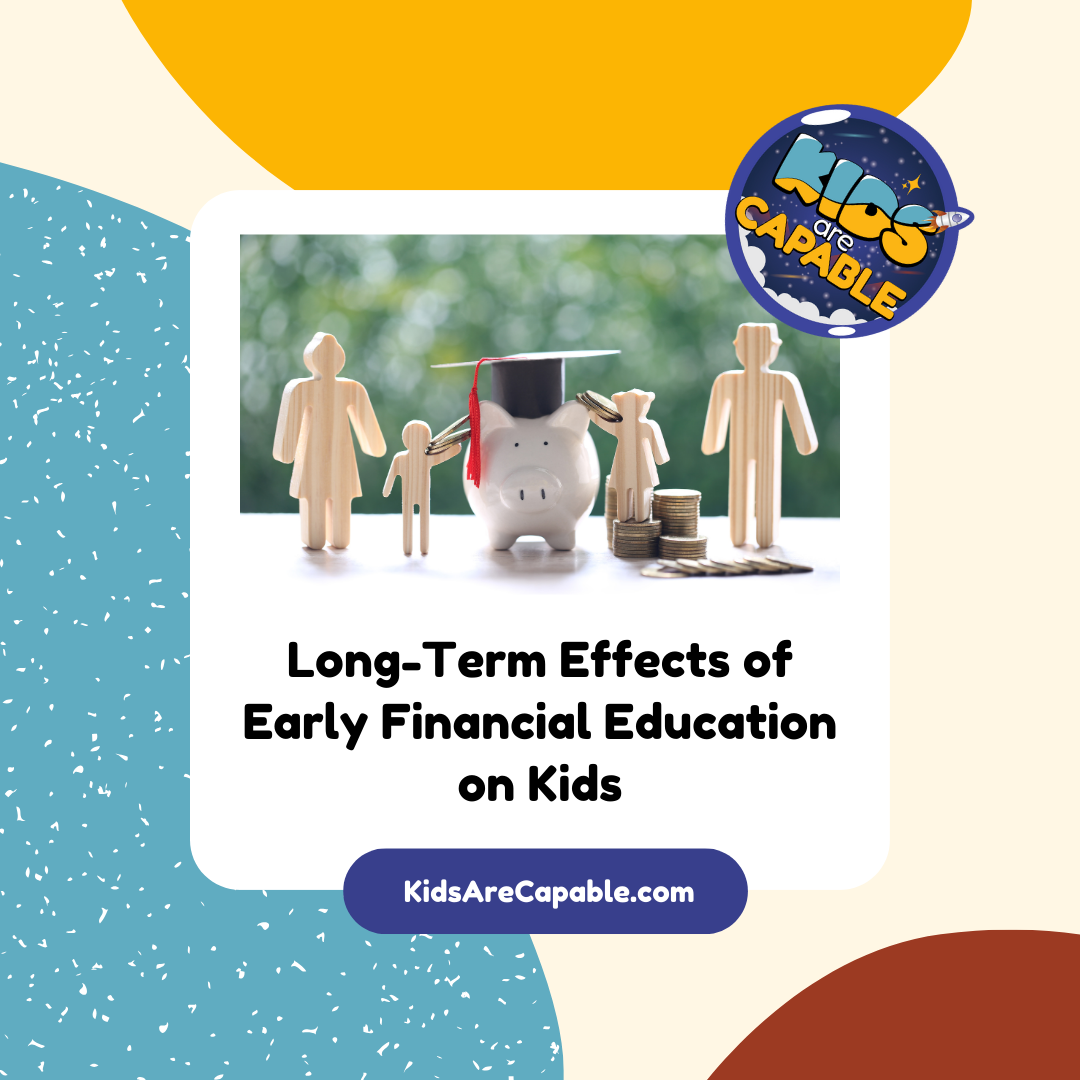Teaching children about money management from a young age can have profound and lasting effects on their future financial stability and decision-making. In this blog post, we’ll explore the potential long-term impacts of early financial education and provide some valuable resources for further reading.
Building a Strong Financial Foundation
Early financial education helps children understand basic concepts like saving, budgeting, and the value of money. This foundational knowledge is crucial as it shapes their attitudes and behaviors toward money management throughout their lives. According to a study by the University of Cambridge, children as young as seven years old can grasp basic financial concepts, and these early experiences significantly influence their future financial habits (source).
Encouraging Responsible Spending and Saving
Teaching children the importance of saving and responsible spending helps them develop a disciplined approach to money management. By learning to prioritize needs over wants and to save for future goals, children are more likely to avoid impulsive spending and debt in adulthood. The National Endowment for Financial Education highlights the long-term benefits of early financial education, noting that individuals who received financial education in their youth are more likely to exhibit positive financial behaviors later in life (source).
Reducing Financial Stress and Increasing Confidence
Financial stress is a common issue for many adults, often stemming from a lack of financial knowledge and poor money management skills. Early financial education can reduce this stress by equipping children with the tools and confidence they need to make informed financial decisions. A report by the FINRA Investor Education Foundation found that adults with higher levels of financial literacy experience less financial stress and greater overall well-being (source).
Promoting Long-Term Financial Stability
Children who learn about money management early on are more likely to achieve financial stability as adults. They tend to have better saving habits, invest wisely, and plan for retirement. Research by the Consumer Financial Protection Bureau (CFPB) indicates that early financial education leads to better financial outcomes, including higher credit scores and lower levels of debt (source).
Enhancing Decision-Making Skills
Financial education not only teaches children about money but also enhances their critical thinking and decision-making skills. By learning to evaluate financial options, compare prices, and consider long-term consequences, children develop a mindset that applies to various aspects of life. This holistic approach to decision-making can lead to more thoughtful and informed choices in both personal and professional contexts.
Conclusion
The long-term impacts of early financial education on a child’s future financial stability and decision-making are significant and far-reaching. By providing children with the knowledge and skills they need to manage money effectively, we can help them build a secure and prosperous future. For more information on the importance of financial literacy and additional resources, consider exploring the following links:
By investing in our children’s financial education today, we pave the way for a generation of financially savvy and confident adults.

